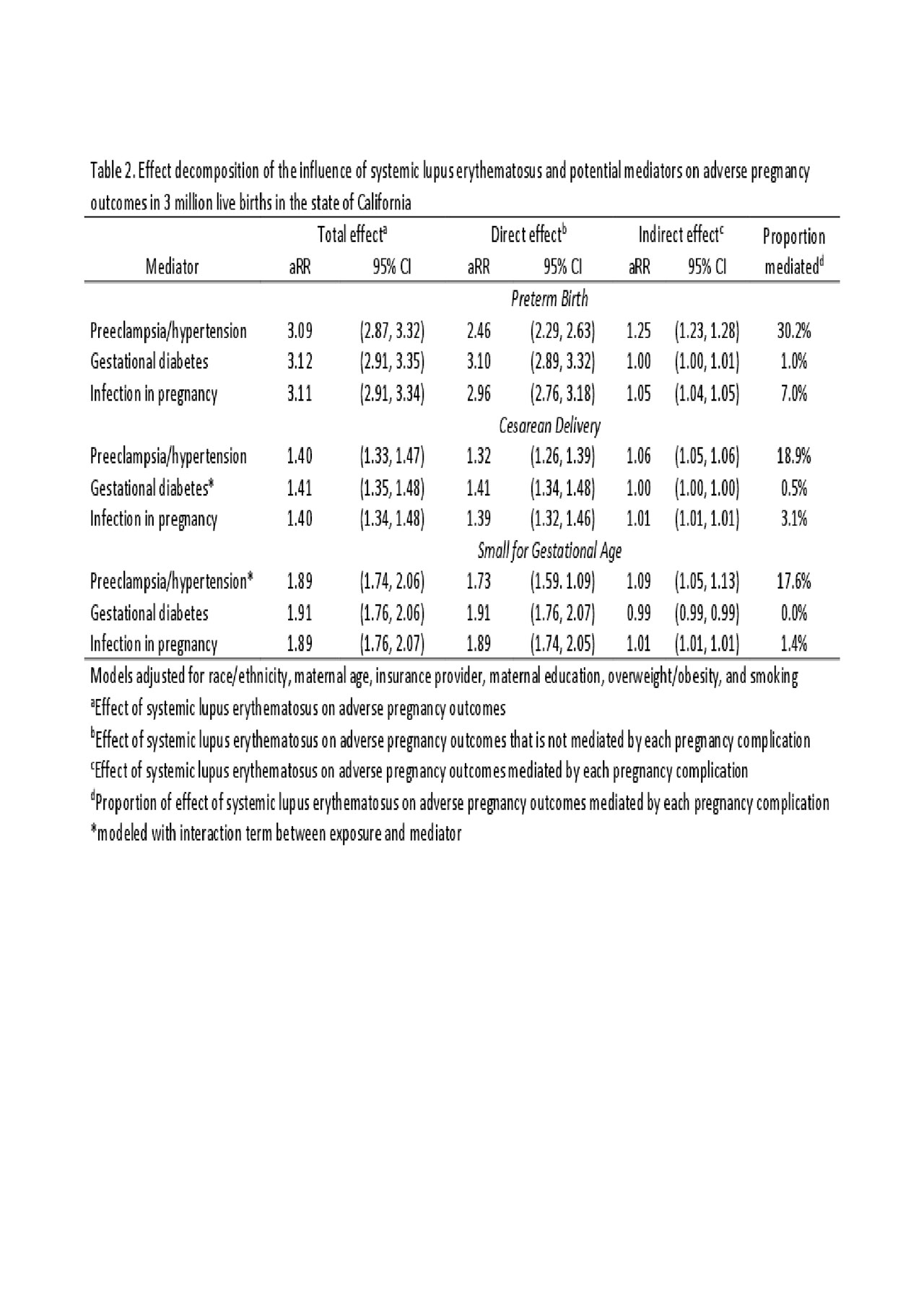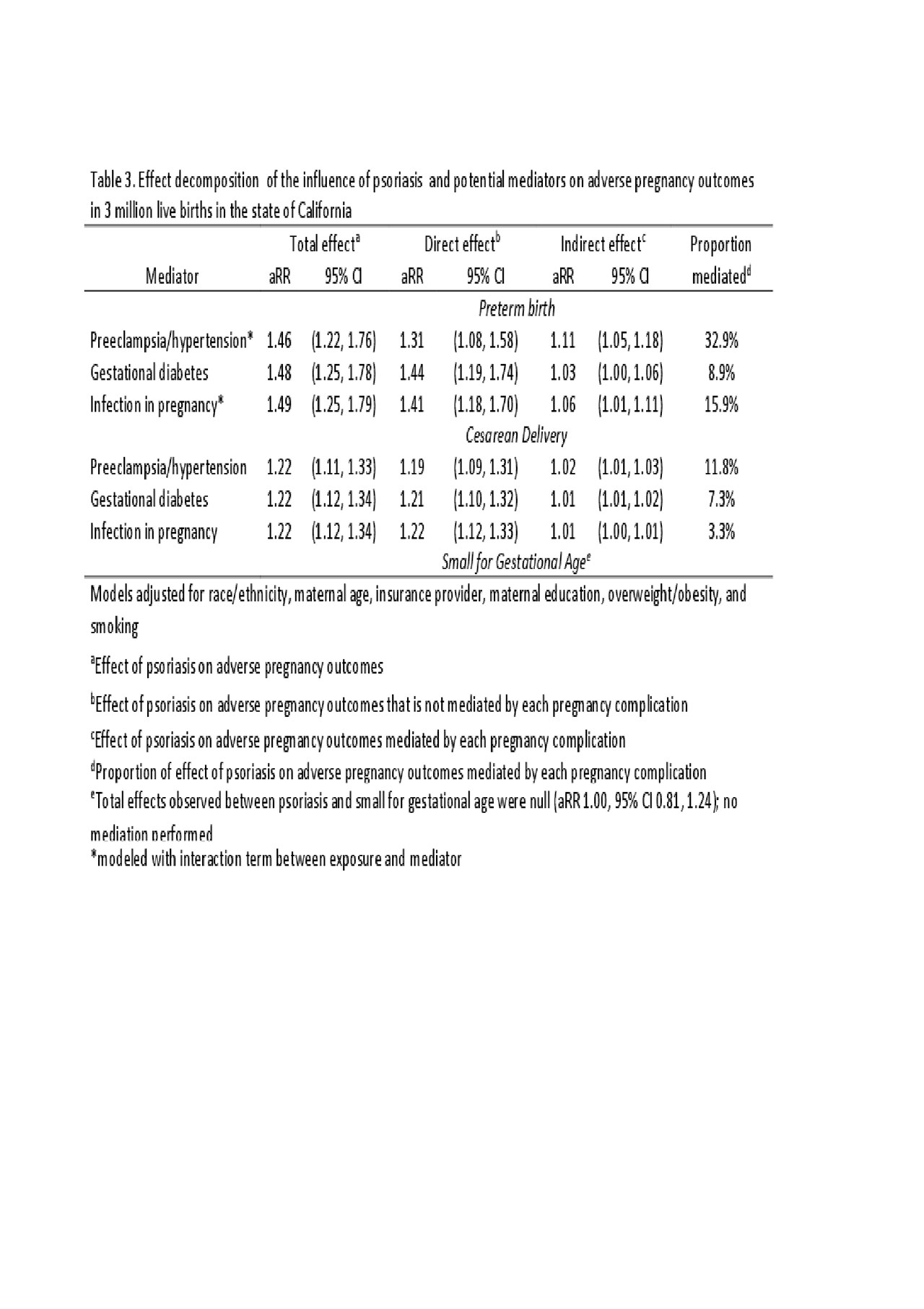Session Information
Date: Monday, November 11, 2019
Title: Epidemiology & Public Health Poster II: Spondyloarthritis & Connective Tissue Disease
Session Type: Poster Session (Monday)
Session Time: 9:00AM-11:00AM
Background/Purpose: Autoimmune conditions are associated with an increased risk of adverse pregnancy complications and outcomes, suggesting that pregnancy complications may mediate the excess risk. We performed a causal mediation analysis to quantify the mediated effects of autoimmune conditions on adverse pregnancy outcomes.
Methods: We queried a retrospective California birth cohort created from linked birth certificates and hospital discharge summaries. From 2,963,888 births, we identified women with rheumatoid arthritis, systemic lupus erythematosus, psoriasis and inflammatory bowel disease. Pregnancy complications included preeclampsia/hypertension, gestational diabetes and infection in pregnancy. Adverse pregnancy outcomes were preterm birth, cesarean delivery and small for gestational age. We performed a causal mediation analysis to estimate the total effects of each autoimmune condition and adverse pregnancy outcome, and the indirect effects of each pregnancy complication.
Results: Each autoimmune condition was associated with an increased risk of all adverse pregnancy outcomes (Tables 1-3, inflammatory bowel disease not shown), except psoriasis and small for gestational age. The strongest mediator was preeclampsia/hypertension, accounting for 20-30% of the excess risk of preterm births and 10-15% of excess cesarean deliveries in all autoimmune conditions except IBD. Gestational diabetes and infections generally accounted for < 10% of excess adverse pregnancy outcomes. Of the four autoimmune conditions, selected pregnancy complications mediated the least amount of adverse pregnancy outcomes among women with inflammatory bowel disease (not shown).
Conclusion: We found evidence that some excess risk of adverse pregnancy outcomes is mediated through pregnancy complications, particularly preeclampsia/hypertension. Quantifying excess risk and associated pathways provides insight into the underlying etiologies of adverse pregnancy outcomes and can inform intervention strategies.
To cite this abstract in AMA style:
Chambers C, Bandoli G, Singh N, Strouse J, Baer R, Donovan B, Feuer S, Nidey N, Ryckman K, Jelliffe-Pawlowski L. Mediation of Adverse Pregnancy Outcomes in Autoimmune Conditions by Pregnancy Complications [abstract]. Arthritis Rheumatol. 2019; 71 (suppl 10). https://acrabstracts.org/abstract/mediation-of-adverse-pregnancy-outcomes-in-autoimmune-conditions-by-pregnancy-complications/. Accessed .« Back to 2019 ACR/ARP Annual Meeting
ACR Meeting Abstracts - https://acrabstracts.org/abstract/mediation-of-adverse-pregnancy-outcomes-in-autoimmune-conditions-by-pregnancy-complications/



